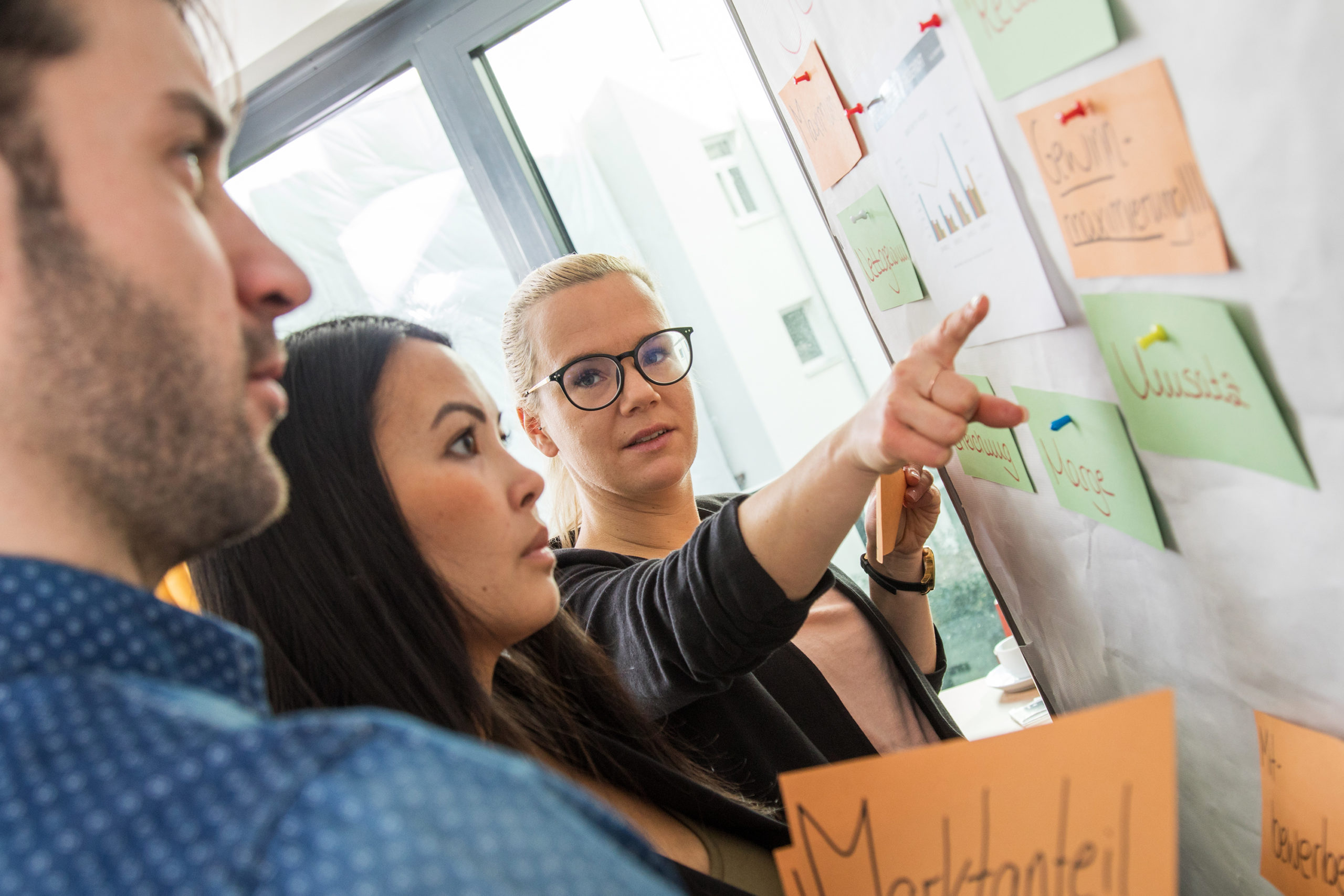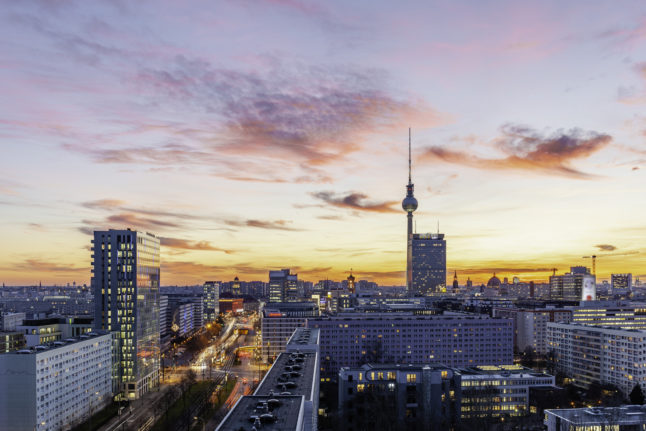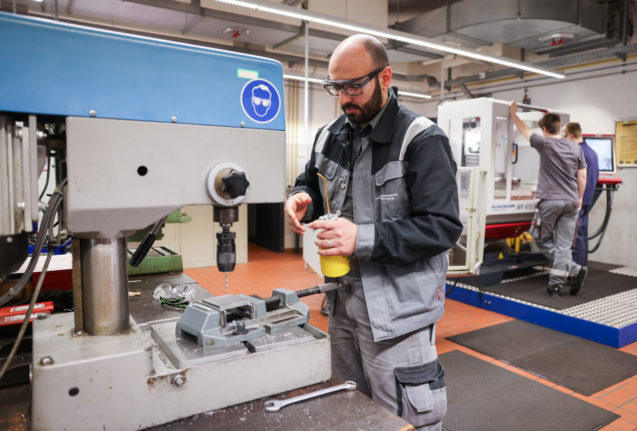With over €5.1 billion in venture capital fund investments raised last year, the startup industry in Germany’s capital is booming. Startups are the fastest-growing job sector in Berlin, and more than 78,000 people are now employed in the sector.
The sector attracts highly qualified, ambitious people from all over the globe. But what is it really like to work for a Berlin startup?
We spoke to two insiders to find out. Gabriela, 36, is originally from Poland and has been a Business-to-Business Manager in a tech startup in Berlin since October last year. Giuseppe, also 36, is originally from Italy and has been working as a Human Resources Manager in various tech startups for the last seven years.
Most important question first – do you actually get free pizza and office table tennis?
Giuseppe: These kinds of benefits have become a bit of a cliche that doesn’t really reflect the reality anymore. Yoga, soft drinks, and fruit baskets are nothing special. The real benefits are now to do with remote working and flexible working schedules.
Gabriela: We haven’t really had many of these kinds of ‘incentives’ because we’ve been mainly working from home since I started. Only in the last month or so we’ve been going to the office at least once a week, and we do get free pizza and drinks once a month when the CEO’s give us their monthly update on how the business is going.
READ ALSO: The German regions attracting startups
Would you say that your work environment is diverse?
Gabriela: My team is a complete mix of people from different European countries. But the number of BAME (Black, Asian and minority ethnic) people on board is not very high and there is definitely a problem with the lack of female leadership, which the company is trying to address. The CEOs are all white Germans.
Giuseppe: (Lack of) diversity is still a big problem. Most of the CEOs and the highest earners are white – usually German – guys. Women and BAME people tend to occupy lower-paid jobs. It’s a systemic issue – and there is competition among a lot of startups that are trying to show who is more diverse.
How much German is spoken in your company?
Gabriela: Hardly any. We speak all the time in English with each other and all of our meetings are in English.
Giuseppe: It’s the same with us. I’m hearing German less and less.
READ ALSO: How easy is it to get an English-speaking job in Germany?
Is there anything then that indicates that the company you’re working for is German?
Gabriela: I think the presence of a strong labour law reminds you that you’re in Germany. In our company, there’s an employees representation group and certain clear rules. You know that you won’t be suddenly dismissed once you’ve passed your probation time.
Giuseppe: Yes, the labour law is what I would point to. It’s not easy to get rid of employees in Germany – there is a more robust framework that affects the environment and culture.
What is the salary like?
Gabriela: I think it’s competitive. My company does salary benchmarking every summer to see what the standard is across the industry and adjusts its pay accordingly.
Giuseppe: Salaries have gone up a lot in the last few years and you could even say they are booming now. A ‘normal’ engineer can expect to earn at least €85,000 per year, and if you are in a serious leadership position, you can expect to earn up to €180,000.
READ ALSO: Do internationals face discrimination in the workplace

Would you say that it’s a high-pressure environment to work in?
Gabriela: For me, there isn’t the kind of pressure that if you don’t perform you won’t get the money you should be getting. Instead, my company is trying to get you to think that your own success is intertwined with the success of the company. There are good incentives to work hard and we have also a certain amount of shares in the company, so if it does well we benefit too.
Giuseppe: I personally feel pressure, but I love what I do, so for me it’s fine. But I have seen a lot of cases of people burning out – especially young people. I think because there are a lot of young managers, who get into leadership roles without having the tools or strength to resist the pressure.
How do you find the work-life balance?
Giuseppe: I feel like I’m working all the time, but again, that’s because I love my job and I want to, it’s not necessarily the expectation, it’s not like in the US. In Berlin tech startups, there is a tendency to slow down around 6pm.
Gabriela: For me, the work-life balance compared to previous jobs is very good. Telecommuting is great, there are flexible starting times and last-minute holiday requests are usually approved. I think it’s very good for people with children and more complex schedules.
How many days holiday do you get?
Gabriela: We get 28 days holiday per year.
Giuseppe: We get between 23 and 30 days holiday per year, depending on how long you’ve been working in the company.
What are the career progression opportunities like?
Gabriela: Very dynamic. For myself, I don’t see a clear career path at the moment, but I see a lot of movement happening and people moving to different roles. There is a feeling of being in a constant state of change.
Giuseppe: If you join a startup at the right time, you can very easily become a manager very quickly.
READ ALSO: EXPLAINED: How to boost your career chances in Germany
What was different about working for a Berlin start-up than you expected?
Gabriela: I thought that working from home would be easier, because I hadn’t done that much before, but I find it much harder to be engaged than I expected. I think a lot of startups (in Berlin) are struggling now to find the right balance between the competing interests of their employees – some of whom want to be fully remote and others who want to come more regularly to the office.
Giuseppe: Before I started working for tech startups I had this romantic image that they were all led by geniuses with big ideas who started in their garages. But in reality, I’ve found this emotional, big-dreaming side to be lacking. There are a lot of people who work for startups who just see it like any other job.

What are the best things about working for a Berlin tech start-up?
Giuseppe: You can make an impact with what you do, to build a product and say it’s mine. There is also creativity and freshness in the team dynamics. I was deeply unhappy in the years I spent working for big corporations because I didn’t know what the goal was. In startups, the objectives are clear.
Gabriela: You can grow with the company, and there are a lot of positions opening all the time, and it’s very common for startups to promote internal talent.
READ ALSO: EXPLAINED: The German regions attracting startups
What are the worst things about working for a Berlin tech start-up?
Gabriela: Sometimes it can be hard to keep up with the pace of change. It sometimes feels like we are constantly onboarding new people or people are changing roles and there is a slightly chaotic feel to things. The buzzword “agility” is used and abused, and sometimes means staff is expected to go along with anything and everything.
Giuseppe: In the tech start-up world here there seem to be a lot of people who get into the top jobs because they speak a lot, not necessarily because they are the most competent. There is a lot of networking and self-promotion required to push yourself forward. It’s also not a good environment for people who don’t like change, because things change a lot.
Do you think Berlin is a good place for foreigners to work?
Gabriela: Yes, definitely. You have a lot of choice when it comes to places to work – so it’s unlikely you’ll have to stick at a job which
you don’t like. It’s also a big help for foreigners that most startups in Berlin don’t require German language skills.
Giuseppe: Definitely. For me, the mix of cultures and ideas in the workplace is really inspiring and motivating. And, of course, the city of Berlin itself is full of cultural events and has a great night life – so it’s a great place to live for when you want to detach from work too.
Do you have any advice for anyone thinking about joining a tech start-up in Berlin?
Giuseppe: Try to develop an entrepreneurial mindset instead of an employee mindset as soon as possible. Always look for opportunities, don’t take things personally, don’t think about what happened yesterday, and focus on the now.
Gabriela: Be open-minded and be prepared for change.



 Please whitelist us to continue reading.
Please whitelist us to continue reading.
Member comments